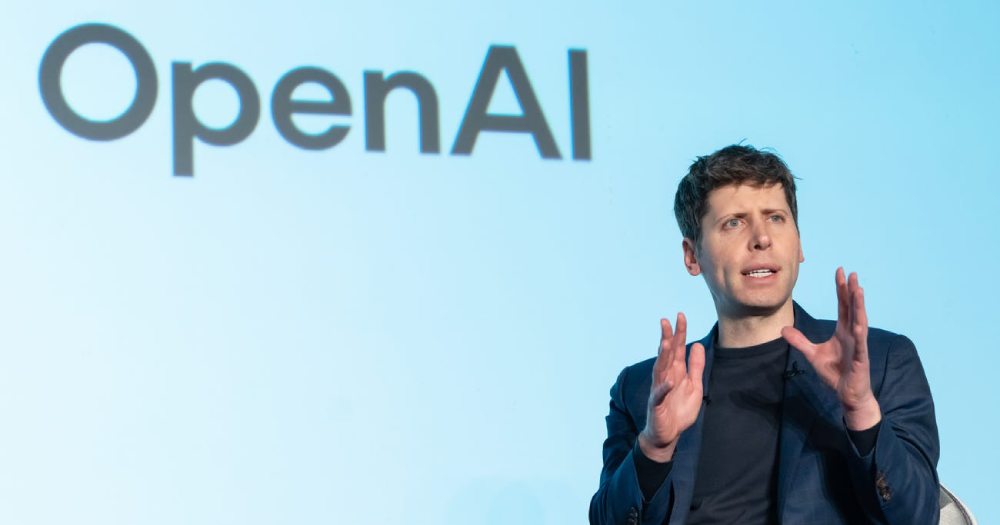OpenAI looking to build its own healthcare apps, hires exec from Instagram and Doximity

OpenAI — the company that gave us ChatGPT — has its sights set on an industry that touches every one of us: healthcare. According to Business Insider, the AI giant is no longer content just building general-purpose chatbots. It now aims to develop its own health-focused apps, catering to both everyday patients and hospitals and clinics. To make that leap, OpenAI has tapped Daniel Etra, an executive with experience at Instagram and the physician network Doximity, to spearhead its healthcare product strategy.
The hire isn't just a résumé play. It's a signal. OpenAI is serious about establishing a presence in medicine, not just licensing GPT to others.
How would it work?
Think of OpenAI's move as a fork in the road. Instead of only powering third-party tools, it's gearing up to build native health products from scratch. That could mean:
- Clinical support systems that help doctors sift through patient data or draft documentation.
- Patient engagement apps that guide people through care plans with more nuance than today's rigid chatbots.
- Enterprise tools that plug straight into hospital IT, bringing GPT deeper into the bloodstream of healthcare systems.
OpenAI says it's focusing on safety and compliance, two words that carry extra weight when lives — not just emails or essays — are at stake.
Etra's background straddles both worlds: Instagram sharpened his consumer tech skills, while Doximity provided him with insider knowledge of how healthcare actually works. That's not a common combination in Silicon Valley.
Why does it matter?
Healthcare is a trillion-dollar industry still drowning in paperwork, delays, and burned-out staff. Generative AI, in theory, could ease some of that pain. We're already seeing early trials of GPT-4 in triage tools, clinical documentation, and patient intake. The promise? More time for doctors to talk to patients, less time wrestling with forms.
OpenAI stepping in with its own branded apps suggests it wants to own the relationship — not just be a quiet partner under the hood. That's a bold bet. It also raises the stakes. If OpenAI can prove its tech works safely in hospitals, it won't just make doctors' lives easier. It could reshape how care is delivered.
As one insider put it, "We're not talking about another scheduling app. This is about building tools that are both technically advanced and clinically relevant."
The context
The broader landscape of healthcare AI is heating up as major technology companies aggressively expand their presence across both clinical and consumer-facing applications. Microsoft, for instance, has launched several initiatives: its AI Diagnostic Orchestrator (MAI‑DxO) achieved about an 85% accuracy rate on complex diagnostic cases — more than four times higher than human doctors — using a novel "chain of debate" architecture that orchestrates multiple AI agents and integrates various LLMs. Additionally, Microsoft's Dragon Copilot leverages Nuance technology to transcribe and summarize clinical visits in real-time, helping reduce clinician burnout and administrative burden. These moves underscore Microsoft's strategy of embedding AI deeply into both diagnostic workflows and care delivery tools.
Meanwhile, Google, Palantir, Amazon, Apple, and IBM (via Merative, formerly Watson Health) are staking their claims in this dynamic space. Palantir saw a 48% revenue surge in Q2 2025, led by expanding AI infrastructure sales into healthcare, showcasing how enterprise clients are embracing its domain-specific platforms. Amazon, Apple, Google, and even OpenAI were noted by the CMS as partners in efforts to modernize digital health technologies. Google and NASA are developing AI tools for autonomous medical interventions in space missions — an ambitious but telling example of the frontiers companies are exploring. IBM's Merative continues work on clinical decision support systems, using AI to aid diagnosis and treatment recommendations, while OpenEvidence, a startup, has been rapidly adopted by U.S. clinicians by offering AI-powered, evidence-based medical search and consultation tools, signaling the rising relevance of AI-enabled interfaces in patient care and research.
💡Did you know?
You can take your DHArab experience to the next level with our Premium Membership.👉 Click here to learn more
🛠️Featured tool
 Easy-Peasy
Easy-Peasy
An all-in-one AI tool offering the ability to build no-code AI Bots, create articles & social media posts, convert text into natural speech in 40+ languages, create and edit images, generate videos, and more.
👉 Click here to learn more


